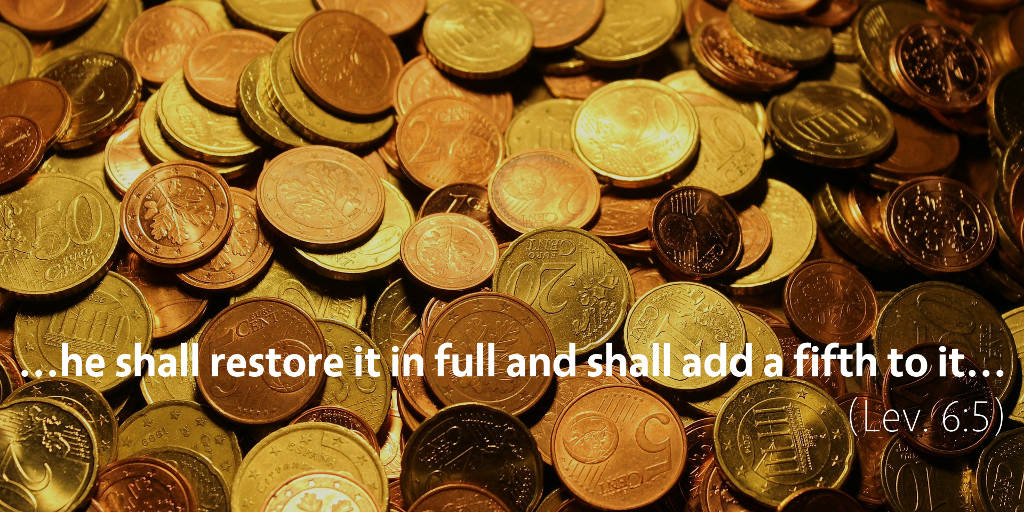Bible Readings for April 3rd
Leviticus 6 | Psalms 5–6 | Proverbs 21 | Colossians 4
In Leviticus 5–6, we read about the final type of sacrifice under the old covenant Levitical priesthood: the guilt offering. The guilt offering was similar to the sin offering in two ways. First, the guilt offering, like the sin offering, was offered to make atonement for a specific sin, rather than being a general offering for sins like the burnt offering. Second, both the guilt offering and the sin offering were only available for sins that were committed unintentionally (Lev. 5:14, 17), not for sins committed with a “high hand,” that is, deliberate sins.
The difference between the sin offering and guilt offering, then, comes in the way the guilt offering made restitution for the specific value of the wrong the person committed. So, if someone had pledged to bring an offering of a certain value to God but failed to keep that pledge, the worshiper would make restitution by bringing 120 percent of the value of the pledge to the tabernacle along with a guilt offering (“add a fifth to it”; Lev. 5:16). Or, if someone cheated another person in business, the guilty party similarly owed his victim the full value of what he had defrauded him, plus another fifth (120 percent; Lev. 6:5). And only after making restitution would the sinner bring the guilt offering before Yahweh to make atonement for his sin.
The principle behind the guilt offering is clear: even though God promises that he will forgive us our sins, not holding his wrath and judgment against us any longer, there are nevertheless no sacrifices that allow us to absolve ourselves of the material consequences of our sins. When we have wronged people, we have real debts that we need to make up.
In his commentary on Leviticus, Allen Ross reminds us of the teaching of Jesus, who said, “So if you are offering your gift at the altar and there remember that your brother has something against you, leave your gift there before the altar and go. First be reconciled to your brother, and then come and offer your gift” (Matt. 5:23–24). Ross then wisely writes this: “Many sins cannot be made right, but those that can should be, otherwise worship is hindered.”1
The fact that Jesus Christ has paid for all of our sins does not mean that the consequences of our sin vanish. We need to proactively find the people we have wronged, seek their forgiveness, and, if possible, restore what we took from them. The guilt offering from Leviticus gives us a theological model to separate out the issues of atonement and forgiveness before Yahweh from the issue of restitution. The same Jesus who made atonement for our sins commands us to make restitution to the people we have wronged.
Is there anyone to whom you need to be reconciled before you worship the Lord today?
1 Allen P. Ross, Recalling the Hope of Glory: Biblical Worship from the Garden to the New Creation (Grand Rapids, MI: Kregel, 2006), 200.
Podcast: Play in new window | Download (5.1MB) | Embed
Subscribe: Apple Podcasts | RSS | More

Scripture quotations are from The Holy Bible, English Standard Version copyright © 2001 by Crossway Bibles, a division of Good News Publishers. Used by permission. All rights reserved.


